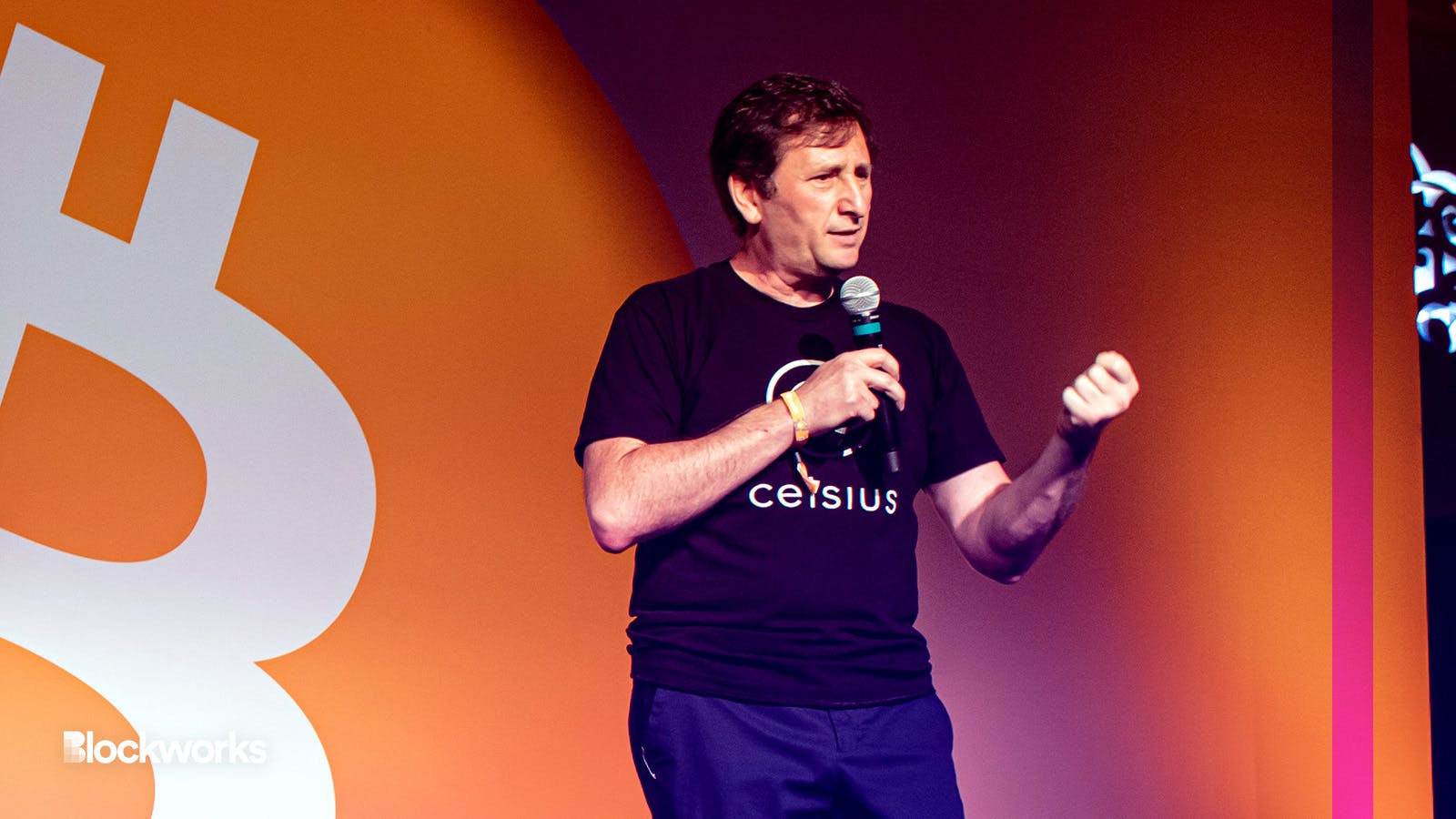Ex-Celsius CEO files motion to dismiss in FTC suit
Mashinsky’s motion to dismiss follows a similar one from co-defendant Hanoch Goldstein

Former Celsius CEO Alex Mashinsky | Kevin McGovern/Shutterstock modified by Blockworks
Former Celsius CEO Alex Mashinsky has filed a motion to dismiss in the Federal Trade Commission’s suit against him.
Mashinsky’s motion to dismiss follows a similar one filed by co-defendant and Celsius co-founder Hanoch “Nuke” Goldstein. Mashinsky’s push is largely focused on one of the arguments made by Goldstein, which claims that the FTC “does not allege a violation of an FTC rule.”
Parts of Goldstein’s motion to dismiss places blame on Mashinsky and others at Celsius.
“Mashinsky was responsible for leading almost all of the acts of misconduct alleged in the Complaint, including conducting weekly marketing and advertising videos called ‘Ask Mashinsky Anything,” Goldstein’s lawyers argued.
In Goldstein’s motion to dismiss, his lawyers argued that “the FTC’s complaint largely describes allegations of misconduct by others at Celsius, and then relies upon perfunctory and boilerplate allegations that Goldstein was part of their scheme.”
Goldstein also argued that the FTC’s settlement with Celsius, which was announced earlier this summer, permanently bars the “alleged misconduct.”
The FTC and bankrupt lender settled for $4.7 billion back in July, and limited the former lender from engaging in business practices linked to crypto assets.
The FTC’s “Complaint cannot substantiate a claim that Mashinsky ‘is violating’ or is ‘about to violate’ the law because Mashinsky resigned from his position as CEO of Celsius” in September of last year, though a typo in the court document says 2023.
The FTC’s complaint alleges that the defendants violated the Gramm-Leach-Bliley act, which covers consumer financial privacy. Though, as both Mashinsky and Goldstein point out, the original FTC complaint “fails to allege” a violation of the act.
Mashinsky also faces a lawsuit from the DOJ, and a recent unsealed motion revealed that lawyers for the government froze his assets in August.
Get the news in your inbox. Explore Blockworks newsletters:
- The Breakdown: Decoding crypto and the markets. Daily.
- 0xResearch: Alpha in your inbox. Think like an analyst.






